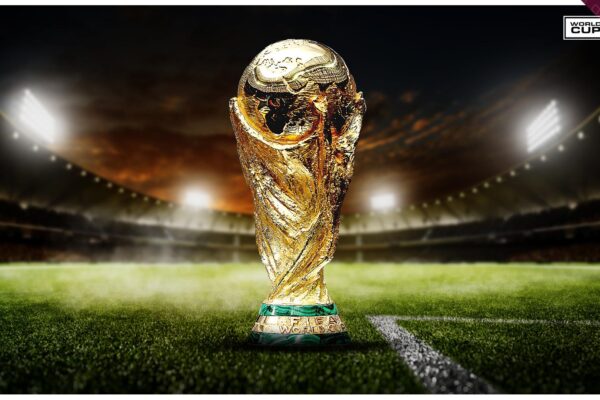Every World Cup gives birth to fantasies of historical and political transformation, a kind of magical thinking that replaces the terrible intractability of history with athletic miracles that promise escape from national impotence or racial humiliation or economic decline.
Such magical thinking about the powers of sport discards rational analysis of societal problems in favor of self-deluding fantasies that promise national grandeur without planning or effort. Nationalist spectacle replaces national reconstruction.
That the Moroccan national team managed to reach its semifinal match against France, its former colonizer, has been hailed as a kind of quasi-miraculous and redemptive event. Suddenly, Morocco’s improbable breakthrough into the sportive stratosphere took on a world-historical significance a legion of smitten journalists could not resist.
The Moroccan team had become the avatar of Pan-Arab solidarity, the avenger of the depredations of European colonialism, and the world-class achievers who had rescued Moroccan dignity from the indignities of the colonial past. “There’s this idea that we can’t accomplish much,” said a Moroccan city councilman. “It’s important that we prove them wrong.”
But the hazards of investing sport with the power to transform a nation’s sense of itself became apparent in Morocco’s lopsided loss to their former French masters. In fact, the overachieving underlings were able to transform the reputation of an underdeveloped Moroccan society for only a brief period before reality set in. “World-class” status had been attained, at least temporarily, by athletes in whose long ascent the Moroccan government had made a massive investment in search of national dignity.
In the meantime, fantasies of national transformation dominate the stage. “Morocco is remaking its own history,” CNN said before the fatal confrontation with France.
The lessons of World Cup history do not inspire confidence in the idea that the euphoria created by a dramatic sportive victory guarantee the lasting benefits sympathetic journalists routinely predict.
In fact, the illusory equating of sportive victories with national strength and self-respect was pioneered at the 1936 “Nazi Olympics” in Berlin, thereby creating an inspirational template for future dictatorships and democracies alike.
Triumph at the World Cup can, for example, inspire fantasies of economic rejuvenation. Spain’s victory in 2010 was widely seen as a national mood brightener that would inspire Spanish consumers to spend their way into an economic boom.
Spanish journalists and some European economists predicted that soccer supremacy could “save the Spanish economy from collapse,” even though 2 million Spaniards lost their jobs after Spain’s victory at the European Championship in 2008.
The devastating collapse of the Spanish housing market that began in 2007 only intensified after the nation’s victory at the 2010 World Cup.
Most importantly, World Cup success has promoted illusions about racial reconciliation. The multiethnic French national team that won the 1998 World Cup was lauded as proof that France had successfully managed to achieve racial and ethnic integration. This fantasy of racial peace was demolished at the 2010 World Cup in South Africa, when a largely Black French team revolted against what team members regarded as incompetent white leadership. Their reward was to be racially vilified by the French media and political elite. As of today, the French finalists of 2022 in Qatar could not field a viable team without their Black players. So, the latest renewal of French racial euphoria awaits une grande victoire over the dangerous Argentines in the championship game.
John Hoberman is a professor of Germanic studies at The University of Texas at Austin and is the author of “The Olympic Crisis: Sport, Politics and the Moral Order” and other publications on sports and politics.
A version of this op-ed appeared in San Antonio Express News.




